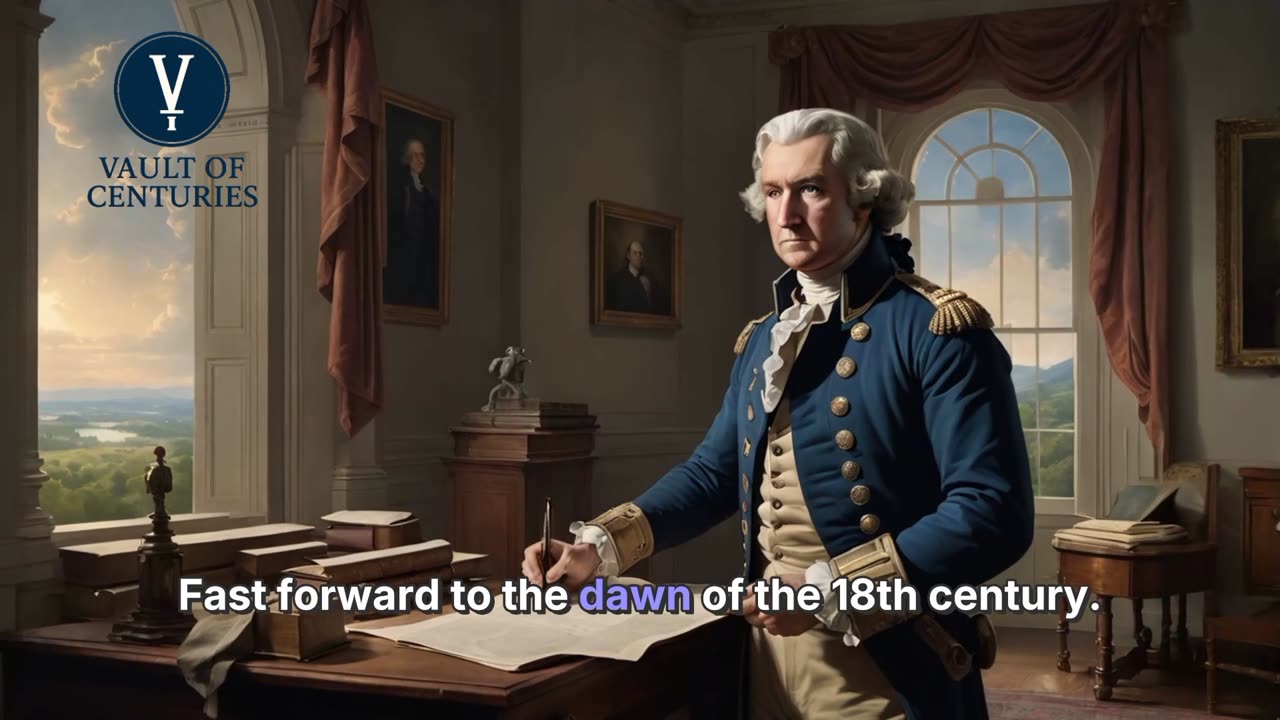Premium Only Content

The Tapestry of American History
This narrative chronicles the rich history of the United States, beginning with Columbus's discovery in 1492 and the subsequent European exploration. It highlights key events such as the War of Independence, the drafting of the Constitution, and the Civil War under Lincoln. The industrial revolution and America's rise as a global superpower during the 20th century are explored, culminating in the Civil Rights Movement led by figures like Martin Luther King Jr.
.
.
#history #freedom #innovation #civilrights #exploration
.
.
In the annals of human civilization, the story of the United States of America is a resplendent tapestry woven with threads of courage, innovation, and resolve.
From its inception, the land now known as America has borne witness to myriad events that have shaped its destiny and carved its place in the chronicles of time.
Our tale begins in the twilight of the 15th century when Christopher Columbus, in 1492, sailed the vast Atlantic blue and chanced upon the New World.
Though not the first to set foot upon its shores, his journey ignited the spark of exploration and heralded an age of discovery.
The subsequent centuries saw the rise of European powers, each laying claim to the verdant lands, each bringing with them the seeds of their diverse cultures.
Fast forward to the dawn of the 18th century. Tensions between the thirteen colonies and the British Crown simmered, culminating in the War of Independence.
Thomas Jefferson, one of the nation's Founding Fathers, penned the Declaration of Independence in 1776, a sacred document proclaiming the colonies' severance from British rule.
Under the aegis of George Washington, a general of indomitable spirit, the fledgling nation fought valiantly, securing its freedom at the Treaty of Paris in 1783.
The birth of the United States was no ordinary event; it was an epoch-making transformation that heralded the advent of a new era of governance.
In the years that followed, the nation's first Constitution was drafted in 1787, enshrining values of liberty, justice, and democracy.
The lineage of the United States is graced with myriad distinguished figures.
Abraham Lincoln, elected to the presidency in 1860, guided the nation through its darkest hours—the Civil War.
His Emancipation Proclamation in 1863 was a clarion call for freedom and justice, setting the trajectory for the abolition of slavery.
The Union's victory in 1865 marked the preservation of the nation and ensured that liberty would endure.
The United States embarked upon the industrial revolution toward the end of the 19th century.
Titans of industry, such as Andrew Carnegie and John D. Rockefeller, transformed the economic landscape, paving the path to prosperity.
However, this era was not devoid of strife; labor movements sprang up in response to exploitative conditions, laying the groundwork for workers' rights.
The advent of the 20th century saw America's growing influence on the global stage.
Woodrow Wilson's leadership during World War I and Franklin D. Roosevelt's tenure during the Great Depression and World War II epitomized statesmanship and resilience.
Roosevelt's New Deal policies revolutionized the social contract, while America's involvement in the global conflict signaled its emergence as a superpower.
A beacon of hope and progress, the mid-20th century witnessed the Civil Rights Movement's ascendance.
Figures like Martin Luther King Jr. illuminated the path toward equality and justice.
-
 LIVE
LIVE
Dr Disrespect
8 hours ago🔴LIVE - DR DISRESPECT - BATTLEFIELD 6 - JET CRASHES, EXPLOSIONS, 360 NO-SCOPES
2,255 watching -
 1:18:10
1:18:10
vivafrei
4 hours agoTom Homan "Bribery" Scandal Smells Like Russia-Gate 3.0! Ostrich Farm Update! Tommy Robinson & MORE!
107K65 -
 1:43:33
1:43:33
The Quartering
4 hours agoLiberal MELTDOWN As Trump Does The Impossible, Charlie Kirk Day, TPUSA Halftime Show & More
108K67 -
 LIVE
LIVE
StoneMountain64
5 hours agoBattlefield 6 Flick Keybind is WILD
166 watching -
 LIVE
LIVE
LFA TV
21 hours agoLIVE & BREAKING NEWS! | MONDAY 10/13/25
853 watching -
 LIVE
LIVE
freecastle
8 hours agoTAKE UP YOUR CROSS- Let the peace of Christ rule your hearts!
75 watching -
 1:02:56
1:02:56
The HotSeat
5 hours agoTrump "The Peacemaker", Unless You're Antifa!!! Part II
36.5K3 -
 2:01:26
2:01:26
Film Threat
1 day agoVERSUS: TRON: ARES VS. TRON LEGACY VS. TRON! BATTLE ON THE GRID! | Film Threat Versus
21.5K -
![[Ep 768] Trump: The President of Peace | Schumer Looking Worse by the Day | Columbus Day](https://1a-1791.com/video/fwe2/d0/s8/1/g/Q/s/q/gQsqz.0kob-small-Ep-768-Trump-The-President-.jpg) 2:19:32
2:19:32
The Nunn Report - w/ Dan Nunn
3 hours ago[Ep 768] Trump: The President of Peace | Schumer Looking Worse by the Day | Columbus Day
22.6K8 -
 LIVE
LIVE
Owen Shroyer
3 hours agoOwen Report - 10-13-2025 - Senate Town Hall with Lindsey Graham Opponent Mark Lynch
1,016 watching